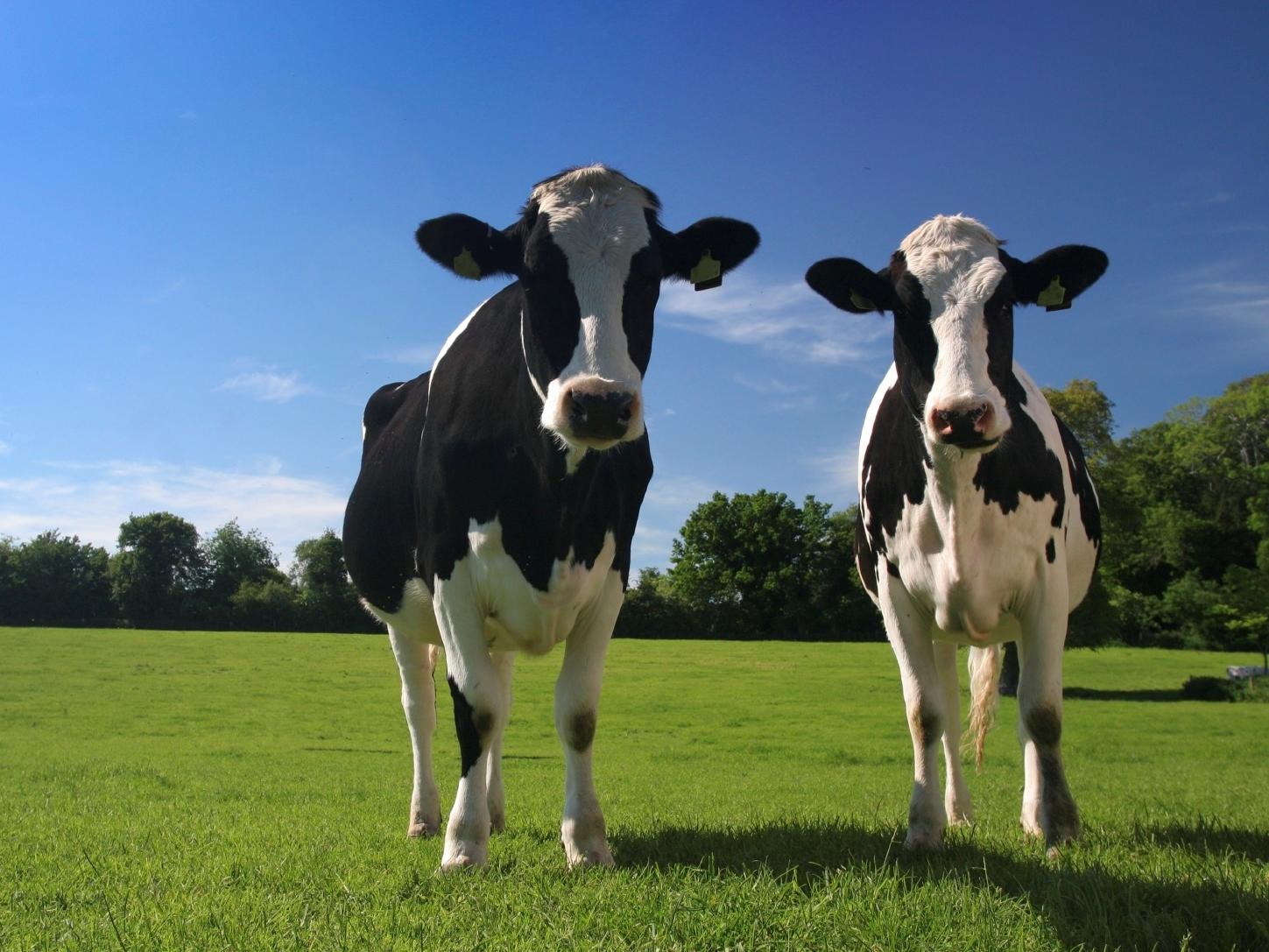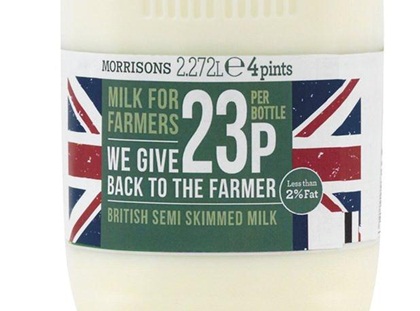
The scheme was set up to help consumers support British dairy farmers, but three quarters of the proceeds from the 'Milk for Farmers' project is going to farmers abroad, it has been revealed.
Both Morrisons and Asda run the programme which sold milk at a higher price with the money going back to dairy farmers in the UK.
The proceeds are in fact divided up among farmers producing milk, butter and cheese in the UK, Sweden, Germany, Belgium and Luxembourg.
When the scheme was launched last year, in a joint statement, the National Farmers' Union, Tenant Farmers' Association and Farmers for Action said it was 'absolutely vital' that the extra money goes back to British farmers, 'we cannot emphasise this enough.'
But data from the Agriculture and Horticulture Development Board (AHDB) said Arla contracted British farmers received £290 from the scheme but would have been paid £1,300 had it not been distributed overseas.

In a statement Asda said: "Arla unveiled Arla Farmers Milk to give shoppers the opportunity to pay a little extra on each bottle to help Arla farmers during challenging market conditions.
"The extra 25p for Arla Farmers Milk will be returned directly to Arla farmers. In line with Arla’s cooperative’s principles, this extra money will be shared amongst its 12,700 farmer owners."
Morrisons said: "Our customers tell us they welcome the opportunity to give extra money to dairy farmers if they so choose.
“The packaging on our Milk for Farmers products is clear that this extra money is distributed by Arla to its farmers in the UK and European countries."
Price conscious
82% of the British public say they would disappointed to see a reduction in UK dairy farming and would be willing to pay a little extra to support it, according to AHDB.
Among the 55 years and older age group, this rises to 91%. More than three-quarters (76%) would do something to stop dairy farming significantly reducing, this score is at the highest level since the study was relaunched in July of last year.
More than half now say that they intend to buy more products with a quality logo; 43% are considering switching to a retailer that sells only British dairy products. Further evidence of the growing sympathy towards dairy farmers can be found in attitudes towards milk price, AHDB said.
Since the recession of 2009, British consumers have become increasingly price conscious, so it is significant that a substantial majority say they would be willing to pay more for their milk.
